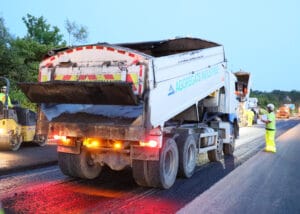Significant progress has been towards the Department for Transport’s transport decarbonisation plan, according to a new report.
Government has brought forward a zero emission vehicle mandate to ensure that the supply of electric vehicles meets the soaring demand and to help the private sector invest with confidence in vital charging
infrastructure.
It has announced funding for Sustainable Aviation Fuels and the creation of new skilled jobs in clean maritime through UK SHORE and has also invested over £200m to launch the world’s largest demonstration of zero emission HGVs.
According to its new report, Decarbonising Transport: A Better, Greener Britain, DfT has also ‘made strides’ in its aim to make public transport and walking and cycling the natural first choice for daily journeys
In 2021, over 18% of new cars sold had a plug, up from just over 3% in 2019.
One year on from launching the transport decarbonisation plan, has set out its next steps to drive down greenhouse gas emissions from transport.
The report, highlights the progress made to date, such as the £200 million zero-emission HGV trials and the zero-emission vehicle mandate to ensure that the supply of electric vehicles (EVs) meets the soaring demand.
The ZEV mandate comes into force in 2024 and the DfT report says that the Government will soon publish a final public consultation on the proposed regulatory framework, with a view to laying regulations in early 2023.
It will also consult on changes to driving licence flexibility for alternatively fuelled vehicles weighing up to 4.25 tonnes, to reduce costs and increase the number of drivers eligible to drive an alternatively fuelled vehicle on a standard licence, reports Fleet News.
The new report says that it will continue to work towards target of 25% of the Government’s car fleet to be ultra-low emission by the end of 2022, and it will continue to work closely with the MCIA and Zemo Partnership to realise the full potential of the zero emission L-category sector.
In terms of infrastructure, the DfT says it will take powers in the Transport Bill to oblige local authorities to produce and implement local charging strategies.
It will also regulate to improve the consumer experience of public charging, such as making it easier to pay and publish British Standards Institute (BSI) standards setting out best practice on accessible design of public charge points.
In addition, it says Project Rapid will increase the number of electric vehicle charge points on England’s motorways and major A-roads and it will deliver a reformed Electric Vehicle Homecharge Scheme – to focus on renters, leaseholders and those living in flats – and expand the Workplace Charging Scheme.
Furthermore, it will take forward the Local EV Infrastructure Fund (LEVI) to support local authorities, working with industry, to deliver charging for drivers without off-street parking.
In terms of heavier vehicles, the DfT says it will publish the response to the call for evidence on exemptions to the 2035 HGV phase out date for HGVs 26 tonnes and under and launch battery electric and hydrogen fuel cell competitions for the Zero Emission Road Freight Demonstrator programme.
The DfT has said it will also publish the Mobility as a Service Code of Practice to signal the UK’s intent for Mobility as a Service to help shape transport outcomes.
It will publish the findings from e-scooter trials, evaluating their environmental and safety impacts and impacts on other road users. This will inform future regulation, including elements to be taken forward through the Transport Bill.
It will also work with industry to develop a shared understanding of future skills needs for the future of transport and net zero challenge and identify actions to ensure skills and employment programmes meet those needs.

























